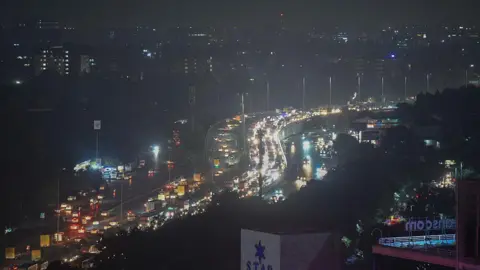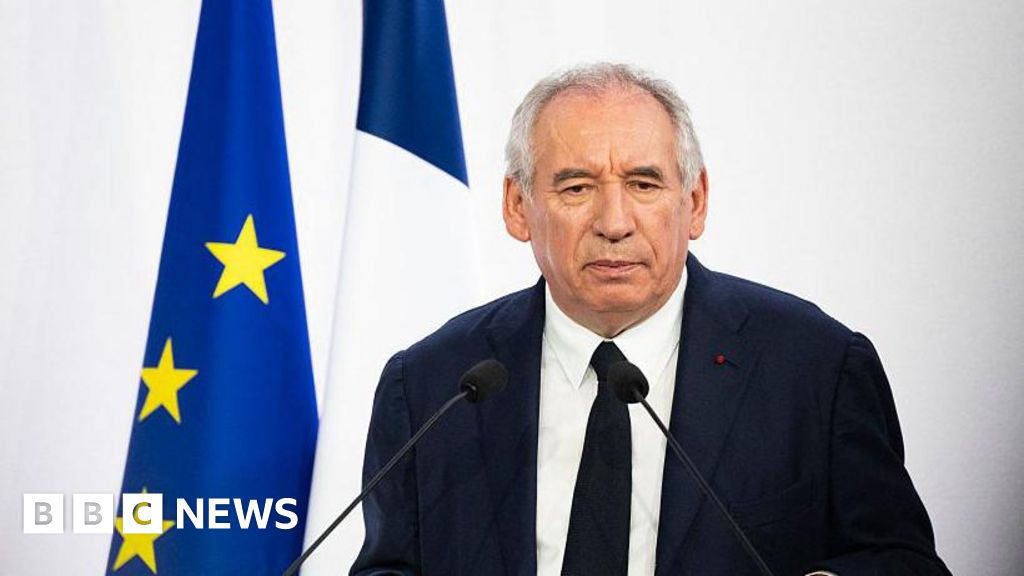The latest political storm in India revolves around serious allegations of “vote theft” in the 2024 general elections, with opposition parties claiming that the Election Commission of India (ECI) has compromised electoral integrity to favor the ruling Bharatiya Janata Party (BJP). Tensions escalated on Tuesday when opposition members forced a parliamentary adjournment, demanding a thorough discussion on the matter. This crisis was highlighted when dozens of opposition leaders, including prominent Congress figure Rahul Gandhi, faced police detentions in New Delhi while attempting to stage a march to the ECI headquarters.
Gandhi first brought these allegations to light during a press conference on August 7, rallying considerable support from opposition lawmakers. He argues that data he has obtained from the ECI indicates large-scale manipulation of voter rolls, particularly citing the Mahadevapura region in Bangalore Central. According to him, over 100,000 entries in the voter list were manipulated, with instances of duplicate entries, incorrect addresses, and bulk registrations at singular locations. For example, he cited a case of 80 voters registered at the same address and claimed instances of voters casting ballots twice, allegations the ECI disputes.
The ECI and BJP officials have categorically dismissed these allegations as unfounded. Following Gandhi's claims, the ECI took to social media to describe the accusations as “absurd”, demanding Gandhi provide a signed declaration to substantiate his assertions or retract them publicly. They also highlighted that the Congress party did not formally challenge the electoral rolls during their revision period. BJP leaders, including federal education minister Dharmendra Pradhan, have condemned Gandhi’s comments as detrimental to democracy, accusing the opposition of inciting chaos.
The political ramifications of Gandhi’s statements are significant, especially in light of a recent revision of electoral rolls in Bihar state, raising concerns of disenfranchisement among voters. Critics argue that the hurried revision disproportionately affects marginalized groups, leading to inaccuracies such as wrong photographs and deceased individuals listed as voters. With significant elections looming in November, the ECI insists its revision process, targeting duplicate and deceased entries, is necessary.
As the Supreme Court is set to address petitions contesting the electoral roll revision, the ECI emphasizes that it deletes names following established protocols, including those of deceased persons and individuals registered multiple times. However, this issue has ignited mistrust among voters, with allegations of mass voting exclusions being considered critically by the court. Gandhi has intensified his claims, asserting a systematic manipulation of votes on a national scale, stating, “Abhi picture baki hai” [the story is not over yet], highlighting the gravity of the situation as the national election landscape hangs in the balance.
Gandhi first brought these allegations to light during a press conference on August 7, rallying considerable support from opposition lawmakers. He argues that data he has obtained from the ECI indicates large-scale manipulation of voter rolls, particularly citing the Mahadevapura region in Bangalore Central. According to him, over 100,000 entries in the voter list were manipulated, with instances of duplicate entries, incorrect addresses, and bulk registrations at singular locations. For example, he cited a case of 80 voters registered at the same address and claimed instances of voters casting ballots twice, allegations the ECI disputes.
The ECI and BJP officials have categorically dismissed these allegations as unfounded. Following Gandhi's claims, the ECI took to social media to describe the accusations as “absurd”, demanding Gandhi provide a signed declaration to substantiate his assertions or retract them publicly. They also highlighted that the Congress party did not formally challenge the electoral rolls during their revision period. BJP leaders, including federal education minister Dharmendra Pradhan, have condemned Gandhi’s comments as detrimental to democracy, accusing the opposition of inciting chaos.
The political ramifications of Gandhi’s statements are significant, especially in light of a recent revision of electoral rolls in Bihar state, raising concerns of disenfranchisement among voters. Critics argue that the hurried revision disproportionately affects marginalized groups, leading to inaccuracies such as wrong photographs and deceased individuals listed as voters. With significant elections looming in November, the ECI insists its revision process, targeting duplicate and deceased entries, is necessary.
As the Supreme Court is set to address petitions contesting the electoral roll revision, the ECI emphasizes that it deletes names following established protocols, including those of deceased persons and individuals registered multiple times. However, this issue has ignited mistrust among voters, with allegations of mass voting exclusions being considered critically by the court. Gandhi has intensified his claims, asserting a systematic manipulation of votes on a national scale, stating, “Abhi picture baki hai” [the story is not over yet], highlighting the gravity of the situation as the national election landscape hangs in the balance.

















